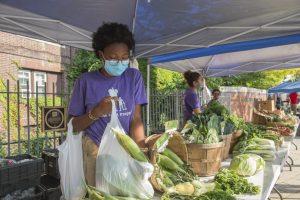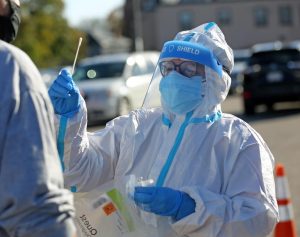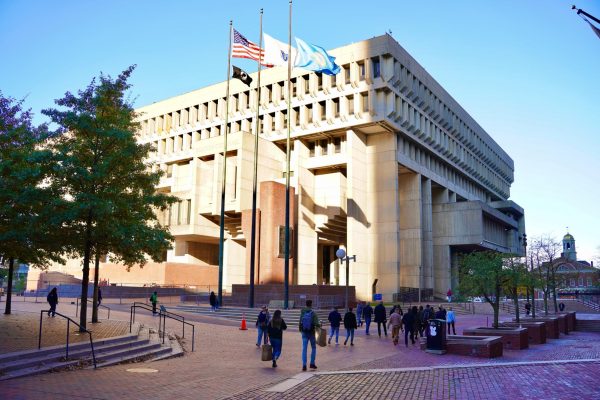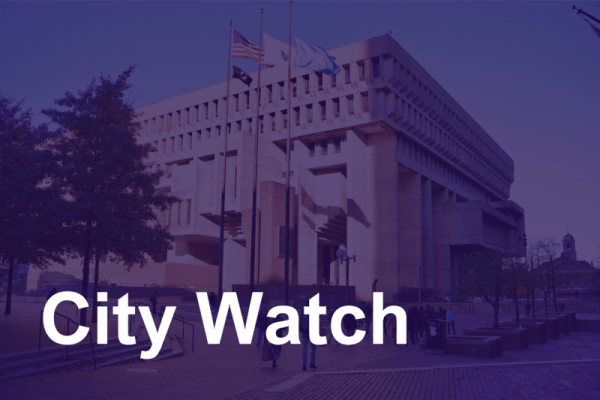Affordable housing, Internet access equity, health disparities discussed this week at city council meeting
As Boston braces COVID-19 second wave, city councilors divert their attention to issues deeply affecting residents, such as advocating for deeply affordable housing that hopefully could help counter the high number of evictions filed so far in the city during the pandemic, increasing Internet access and digital equity for many students who must do their studies online.
Hearing on zoning relief for “100% affordable” and “deeply affordable” housing projects – Docket #0212
Kenzie Bok and Matt O’Malley intend to hold a follow-up to a hearing last year when advocates called for the expansion of 100% affordable and deeply affordable housing in Boston.
Deeply affordable housing targets a different socioeconomic group than traditional affordable housing, according to Inspirica, Inc., a group of housing advocates in Connecticut: affordable housing is designed for those who earn between 50% and 60% of the Area Median Income (AMI), whereas deeply affordable housing targets those who earn only 25% to 35% of the AMI. A hundred percent affordable housing is any development where 100% of units are reserved for low income applicants, according to SPUR, a San Francisco-based public policy nonprofit.
O’Malley said that this issue is critical due to rising rates of houselessness during the pandemic. 6,500 evictions have been filed in Massachusetts since the last time this docket was filed, O’Malley said, and many of those were in Suffolk County. Affordable housing projects in his own district, which includes West Roxbury and Jamaica Plain, parts of Roslindale and Roxbury and the Back of the Hill, have been upheld by litigation that denies hundreds of individuals housing in the heart of Jamaica Plain, said O’Malley, referencing the Pine Street Inn development which has been delayed as a neighborhood landlord sued the nonprofit over parking.
Bok said that amending Boston zoning law would allow the city to build affordable housing with less of these delays.
“The need for affordable housing has never been greater,” said O’Malley.
The docket has been referred to the committee on planning, development, and transportation.
Order for hearing on the Allston-Brighton Master Plan and zoning initiative – Docket #0214
Councilor Liz Breadon’s initiative to establish a master plan for development of the Allston-Brighton area, she said, came from the fact that the district has never had a master plan. The initiative aims to address a range of issues that the district currently faces. For example, over the past decade, Allston-Brighton has seen expansions of academic and medical institutions, an increase in demand for public transit, and a need for new measures to preserve green spaces and improve climate resiliency measures. Since there has been no comprehensive plan for the district, Breadon said, many decisions being made are uninformed on the issues that residents want to see solved.
“We need proactive and equity minded planning informed by the lived realities and needs of community residents,” said Breadon.
Breadon’s statement included statistics about the state of housing in Allston-Brighton, and how it is unsuitable for residents’ needs. The district has seen over 13 million square feet of development in the last decade, including 7,000 new housing units. However, not enough of these units meet residents’ need for family size housing. 66% of these new units are single occupancy, including studio or one bedroom apartments, while only 3% are three bedroom units.
These new buildings are also unaffordable for longterm Allston-Brighton residents, most of whom earn only 50-60% of the area’s median income. Additionally, Councilor Michelle Wu said, $40 billion in development is currently being planned along Western Ave alone. This development results in rapid gentrification, threatening the arts and music industry currently housed in the district.
“It makes such a big difference when our body stands up and calls for thoughtful community driven equitable development and planning,” said Wu. “There needs to be a neighborhood wide plan that fits that with residents’ needs.”
The docket was referred to the committee on planning, development, and transportation.
Ordinance to establish guidelines for residential kitchens – Docket #0216
Councilor Julia Mejia said on Wednesday that the council has “an opportunity to completely change the way we do business in Boston.”
During the COVID-19 pandemic, the council has been looking for innovative ways to revitalize the food service industry. Mejia proposed that Boston should take inspiration from Arlington, Concord, and Newton, cities in Massachusetts that allow businesses to sell certain products prepared in entrepreneurs’ home kitchens directly to the consumer. These businesses, known as residential kitchens, have lower operation costs and are more accessible to new entrepreneurs.
Mejia’s proposed ordinance outlines how to enforce health code standards in residential kitchens and creates a permit process in collaboration with the city’s Inspectional Services Department and Department of Small Business Development. The ordinance would also solve a current issue in the city, Mejia said, citing 22 Boston businesses currently being operated out of residential kitchens without a license. These businesses are concentrated in communities of color and Mejia said this ordinance is aimed at making it easier for these entrepreneurs to build wealth.
The docket was referred to the committee on government operations.
Order for hearing on Internet access and digital equity – Docket #0221
Councilors Ed Flynn, Bok, and Mejia are working together to address the growing need for reliable, high-speed Internet during the COVID-19 pandemic. According to Flynn, a hearing was held on this issue last year, but it is becoming increasingly urgent as students and professionals need to learn and work from home. Not only do these groups need access to high quality Internet, they also need to know how to use it.
“Families, our immigrant communities, communities of color, our seniors, and persons with disabilities are most likely to have issues with lack of Internet access and knowledge of digital skills,” said Flynn. “We need to ensure those residents have resources to stay active in this changing economy.”
Bok said that municipal broadband is a likely solution. Current Internet providers largely rely on private infrastructure, which is not an efficient long-term solution.
Wu added that 1 in 5 Boston households do not have a home Internet subscription, which is deepening disparities and injustice across the city. Breadon, a former physical therapist, also emphasized the need for high quality Internet in low income areas due to the necessity of telehealth. If these vulnerable populations don’t have access, Breadon said, it will increase existing inequities in healthcare.
“We need to fight for better internet access across the city in every home,” said Mejia.
The docket was referred to the committee on city and neighborhood services.
Order for hearing on public health disparities in Boston’s communities of color – Docket #0223
Flynn, working with City Council President Kim Janey and Councilor Ricardo Arroyo, presented a refiled docket from the 2020 legislative session on health disparities for Black and Latinx residents. He said that these Bostonians are disproportionately affected by COVID-19, having higher infection rates, hospitalizations, and mortality rates.
This is consistent with other long-term health issues that disproportionately impact marginalized groups, such as HIV, diabetes, heart disease, and asthma. Arroyo called for these issues to be holistically addressed, since socioeconomic status and climate resiliency measures in low income neighborhoods contribute to health disparities.
According to Janey, her district sees a 30 year life expectancy gap from Symphony Hall to Grove Hall. There are disparities across the board, she said, including issues such as infant mortality, Black maternal health, and emergency room visits.
“COVID has exposed the inequities that were already there, and for communities of color, they are stark,” said Janey. “We can’t just get through the pandemic and think we’re going back to normal, because we need to make sure that we are closing these gaps.”
The docket was referred to the committee on public health.








